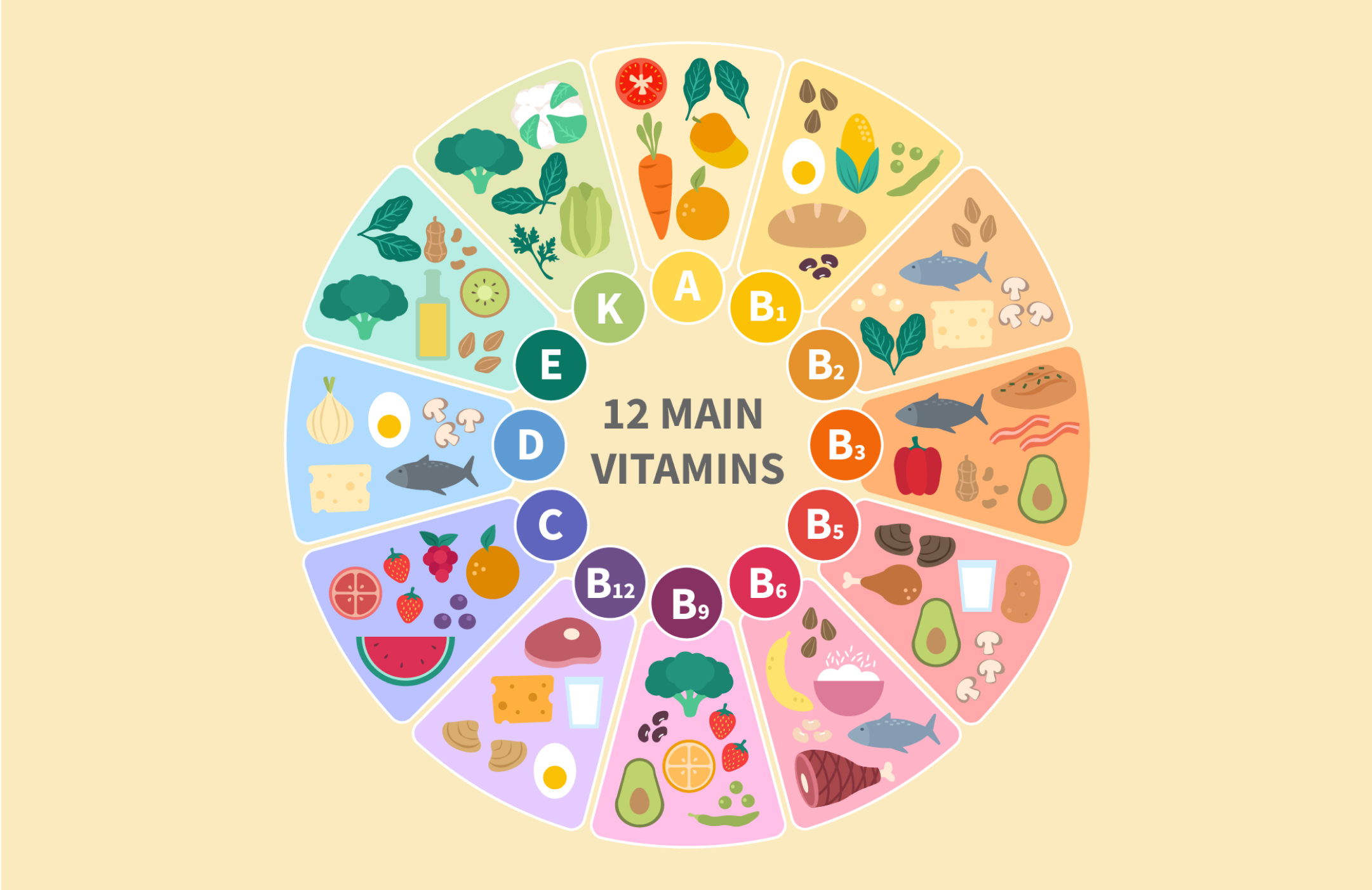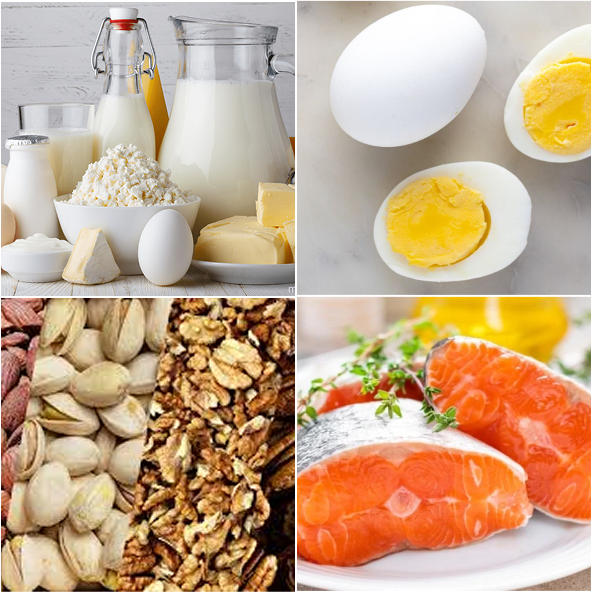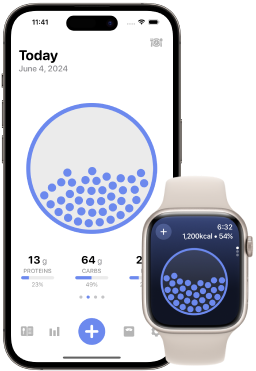
Micronutrients: Types, Functions, Benefits, and More
In this blog, we will explore the types of micronutrients, their functions, benefits, and how you can ensure you’re getting enough of them. Plus, learn how the Calory App can help you track your micronutrient intake effortlessly.
What Are Micronutrients?
Micronutrients are essential nutrients required by the body in minute amounts for proper growth, development, and functioning. Unlike macronutrients (carbohydrates, proteins, and fats), micronutrients don’t provide energy but are crucial for regulating bodily processes and preventing diseases.
There are two main types of micronutrients:
Vitamins: Organic compounds necessary for metabolism, immunity, and cellular repair.
Minerals: Inorganic elements that help with bone health, nerve function, and muscle contraction.
Types of Micronutrients

1. Water-Soluble Vitamins
These vitamins dissolve in water and are not stored in the body, meaning they need to be replenished daily.
Examples: Vitamin C and the B-complex vitamins (B1, B2, B3, B6, B12, folate, biotin, and pantothenic acid).
Functions:
Sources:
Citrus fruits, leafy greens, whole grains, and legumes.

2. Fat-Soluble Vitamins
Fat-soluble vitamins are absorbed with dietary fats and stored in the liver and fatty tissues for later use.
Examples: Vitamins A, D, E, and K.
Functions:
Sources:
Dairy, eggs, nuts, seeds, and fatty fish.

3.Major Minerals
The body requires larger amounts of major minerals for various physiological processes.
Examples: Calcium, potassium, sodium, magnesium, and phosphorus.
Functions:
Sources:
Milk, bananas, spinach, and almonds.

4. Trace Minerals
Trace minerals are needed in smaller quantities but are equally important.
Examples: Iron, zinc, copper, selenium, and iodine.
Functions:
Sources:
Red meat, seafood, nuts, and whole grains.
Functions of Micronutrients
Micronutrients perform a wide range of functions, including:
Benefits of Micronutrients
1. Disease Prevention
A diet rich in vitamins and minerals can help prevent chronic diseases like heart disease, diabetes, and osteoporosis. For example, adequate vitamin D levels reduce the risk of bone fractures, while potassium helps lower blood pressure.
2. Improved Cognitive Function
Micronutrients like iron and zinc support brain health, improving memory, focus, and mood regulation.
3. Better Skin, Hair, and Nails
Vitamins A, C, and E, along with biotin and zinc, promote healthy skin, shiny hair, and strong nails.
4. Enhanced Athletic Performance
Minerals like magnesium and potassium help reduce muscle cramps and improve endurance, while iron optimizes oxygen delivery during physical activities.
How to Ensure You’re Getting Enough Micronutrients
Eat a Variety of Foods: Include fruits, vegetables, whole grains, lean proteins, and healthy fats in your diet.
Focus on Whole Foods: Most processed foods contain very few or no micronutrients, so it is best to stick to whole and minimally processed foods.
Supplement Wisely: Consult a healthcare provider before taking supplements to avoid overdosing on certain vitamins or minerals.
The Calory App helps one in the regulation of nutrition intake by providing him/her with knowledge about his daily requirements for micronutrients.
Micronutrients might be tiny, but their impact on your health is enormous. From supporting immunity to enhancing brain function, these essential nutrients are the building blocks of a healthy body. Incorporating a balanced diet filled with nutrient-rich foods, paired with the Calory App, can help you optimize your intake and stay on track with your health goals.
So why wait? Download the Calory App today and start your journey toward better health and nutrition.
Track Your Micronutrients Now.
